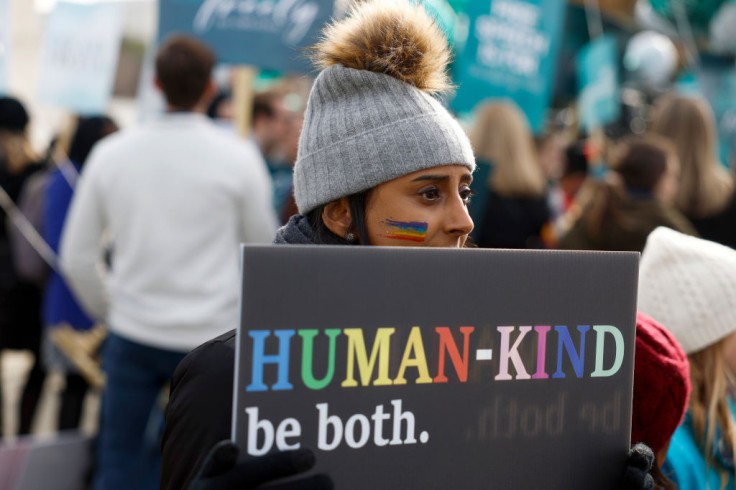
Johns Hopkins University's decision to remove an online glossary definition of the word "lesbian" has sparked significant controversy, leading to accusations of attempting gender-neutral identities and drawing backlash from various quarters.
The university faced criticism after the glossary's definition used the term "non-men" to refer to women and some nonbinary individuals.
The move has ignited a heated online debate about the inclusion of gender-neutral language and the understanding of sexual identities.
Johns Hopkins University's Glossary Definition of Lesbian
According to The Messenger, Johns Hopkins University took action on Tuesday in response to the controversy surrounding its website page, which defined the term "lesbian" as "a non-man attracted to non-men" within its recently introduced inclusive glossary of LGBTQ terms.
Jill Rosen, the school's director of media relations, expressed the university's commitment to fostering an inclusive and accepting environment on campus that embraces diverse gender identities, sexual orientations, experiences, and perspectives.
However, screenshots of the glossary circulated before its removal.
While previous definitions traditionally referred to lesbians as women who are sexually attracted to other women, this updated definition aimed to include nonbinary individuals who identify with the label.
However, this redefinition stirred a wave of backlash and outrage, particularly among women, including lesbians, who deemed it misogynistic.
They pointed out that the glossary did not use similar language, such as "non-women," when defining "gay man."
As per NBC News, in response to the uproar, Megan Christin, the university's director of strategic communications, issued a statement clarifying the purpose of the LGBTQ glossary and addressing the controversy.
Christin further explained that the definitions featured on the website were not reviewed or approved by the Office of Diversity and Inclusion (ODI) leadership.
As a result, the university promptly removed the contentious language pending a thorough review.
Christin acknowledged the concerns raised by the community and affirmed that the language used in the definition of "lesbian" would undergo a comprehensive evaluation to ensure alignment with the university's commitment to inclusivity and accurate representation.
However, she did not provide details about the initial upload date of the online glossary, leaving the timeline of events unclear.
Read Also: England's NHS Delays Routine Offering of Puberty-Blocking Drugs To Minors, Calls for More Evidence
Gender-Neutral Language Debate Continues
The controversy surrounding Johns Hopkins University's LGBTQ glossary is just the latest episode in an ongoing battle over the integration of gender-neutral language.
As an increasing number of individuals worldwide identify as nonbinary, gender-nonconforming, or gender-fluid, discussions about inclusive terminology and representation have gained prominence.
According to The Baltimore Banner, the debate surrounding gender-neutral language has witnessed notable figures expressing their opinions. J.K. Rowling and others have previously mocked gender-neutral terms such as "people who menstruate," "pregnant people," or "chestfeeding."
These instances have further fueled the ongoing discussions about inclusivity and the acceptance of gender diversity.
As Johns Hopkins University reviews the language used in its LGBTQ glossary, the outcome of the evaluation and subsequent revisions will likely play a significant role in shaping the understanding of sexual identities and the use of gender-neutral terminology in educational institutions and broader society.
The university faced criticism for using the term "non-men" to define "lesbian," leading to accusations of attempting gender-neutral identities.
With gender-neutral language becoming a prominent topic of discussion, the outcome of the university's review will influence the understanding and representation of sexual identities in academic settings and beyond.